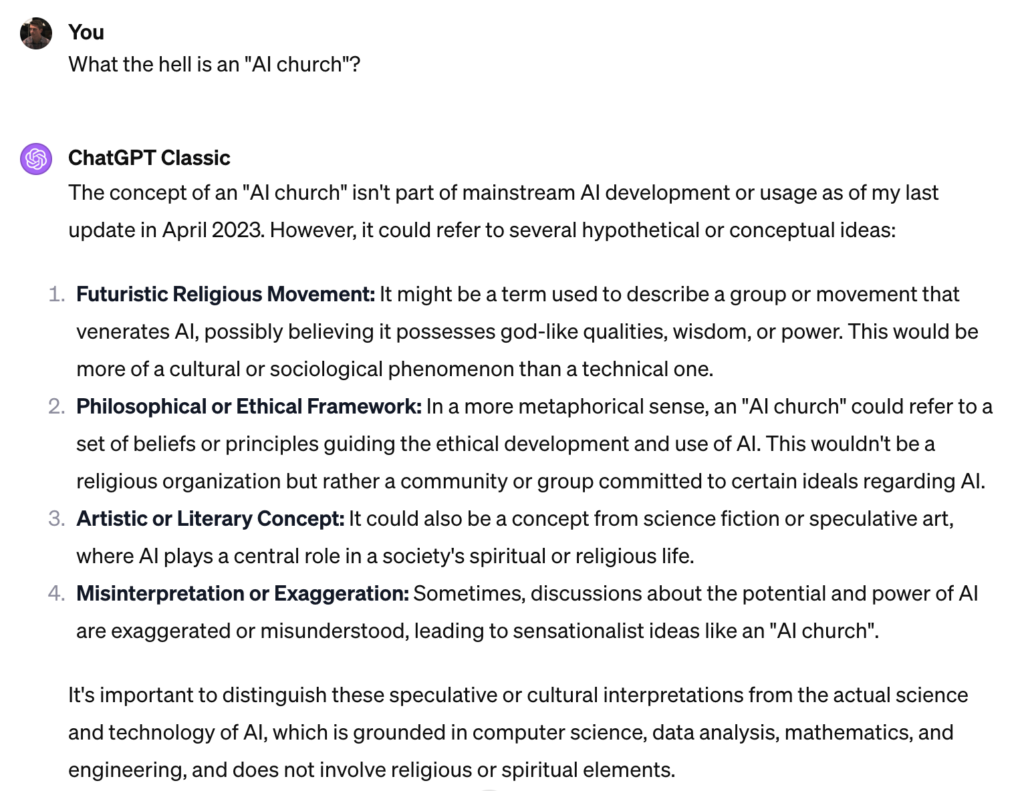Welcome to the latest edition of FindBiometrics’ AI update. Here’s the latest big news on the shifting landscape of AI and identity technology:

OpenAI had a busy week. If you’re following AI, you already know about Sam Altman’s abrupt dismissal and his return a few days later. What’s still unclear is exactly why the OpenAI board shoved him out in the first place; Reuters has an intriguing report, citing two unnamed sources, of a letter that OpenAI researchers sent to the board warning about a “powerful artificial intelligence discovery that they said could threaten humanity,” shortly before the turmoil began.
Palo Alto-based Inflection AI has launched the second-generation version of its flagship large language model. The company claims it has “the second most capable LLM in the world today.” Apparently its “Inflection-2” LLM is based on 175 billion parameters. OpenAI’s has 1 trillion parameters, and Amazon is reportedly working on a 2 trillion-parameter model called “Olympus”.
Microsoft has developed its own AI semiconductor chips. One of them, “Maia”, is designed to run generative AI in data centers. The other, “Cobalt”, will support cloud-based software services and is based on Arm architecture. Both chips will be made by Taiwan Semiconductor Manufacturing Co, with Cobalt expected to be integrated into Microsoft’s Azure cloud platform next year.
Tech entrepreneur Anthony Levandowski has revived his “Way of the Future”, described as an ‘AI church” meant to establish a spiritual link between people and AI. It was shuttered a few years after its initial founding in 2015, but Levandowski says it now has a congregation of “a couple thousand people”. He wants to reach out to people whose lives will be disrupted by the technology.
The UK-based chip designer Graphcore is pulling out of China, citing US export controls that will make business difficult. Graphcore designs chips tailored for AI software and was once seen as a rival to Nvidia, though it has been losing money lately.
Nvidia, meanwhile, is doing great. The company reported a 206 percent boost in revenues year-over-year in its latest quarterly update. Nvidia expects a significant drop in sales in China due to the sanctions, but believes it will be “more than offset” by growth elsewhere. “I think we are at the beginning of a — basically across the board — industrial transition to generative AI, to accelerated computing,” said CEO Jensen Huang.
Researchers at the Nanyang Technological University in Singapore have developed an AI system that can create a deepfake of a person speaking recorded audio based on a single photo of the individual. The audio could be a recording of someone else—a video published by the team showed its lead researcher’s face animated to the speech of Barack Obama. The researchers envision applications such as virtual assistants in healthcare.
FaceTec has brought on Andrew Hughes, a standards and compliance expert with over 25 years of experience in digital identity, as the company’s new Vice President of Global Standards. Hughes has been working in board and advisory roles with the Kantara Initiative, where he has chaired the Deepfakes/AI Threats to ID Verification group for the past few months.
The chatbot’s take: We tried to get a bit of clarity about the “Way of the Future”.









Follow Us